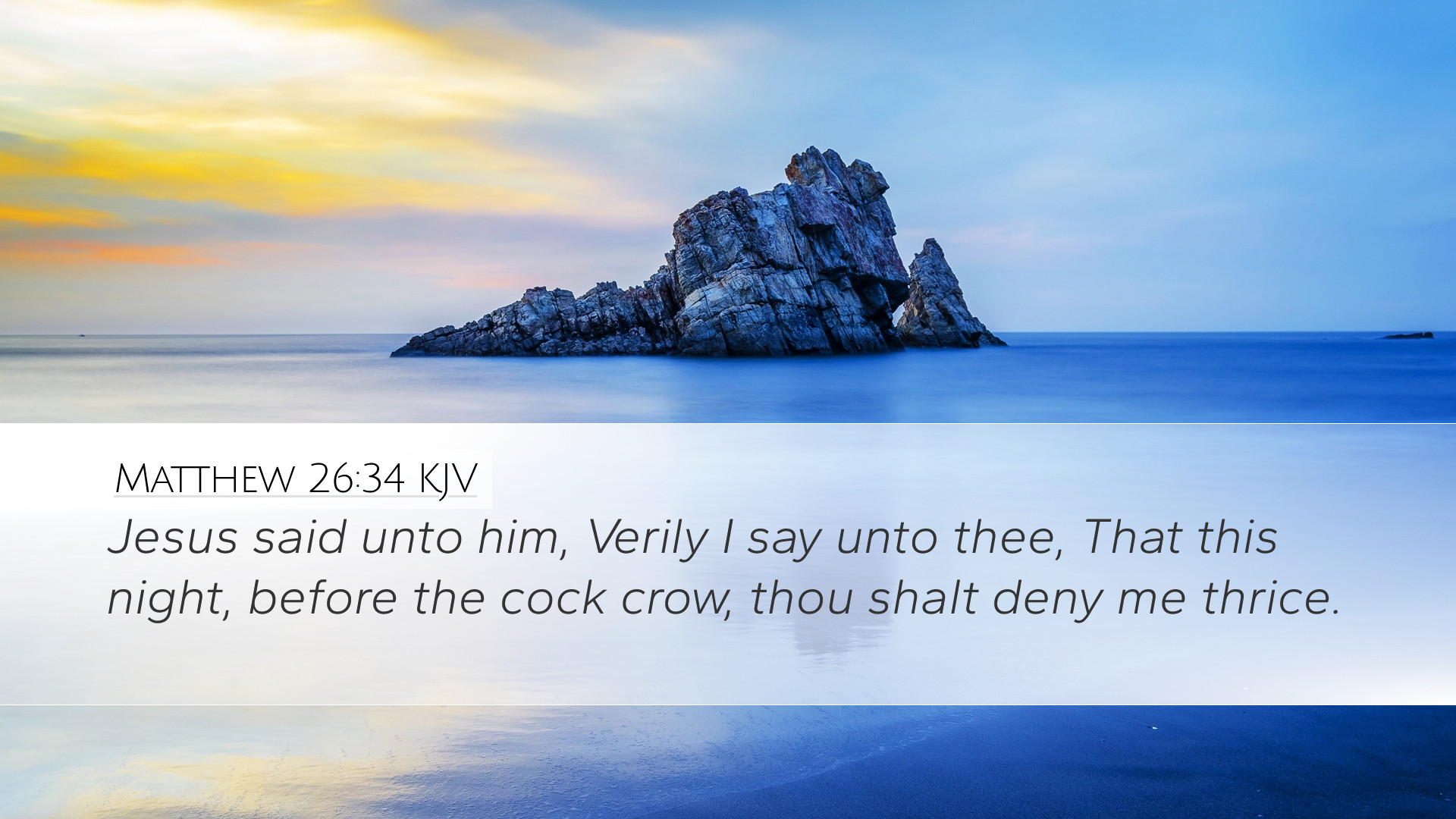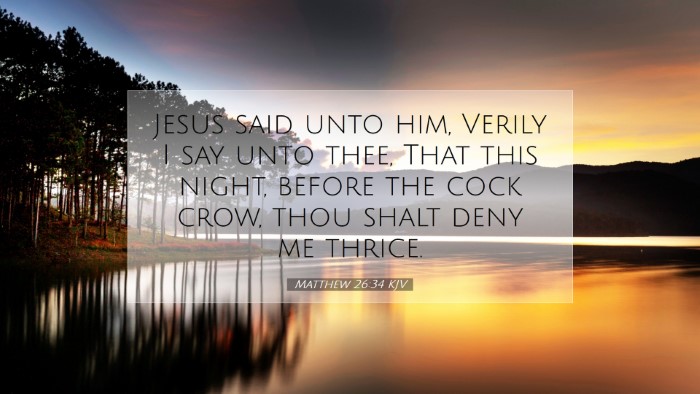Commentary on Matthew 26:34
Verse: “Jesus said unto him, Verily I say unto thee, That this night, before the cock crow, thou shalt deny me thrice.”
Contextual Overview
This verse is situated within the broader narrative of the Passion of Christ, specifically during the Last Supper. It is a pivotal moment that underscores Peter’s impetuous character, which is reflective of human frailty in contrast to divine foreknowledge and grace.
Insights from Matthew Henry
Matthew Henry emphasizes the importance of understanding Peter's denial as a forewarning to all believers regarding the susceptibility to falter under pressure. He comments on the contrast between Peter’s bold declarations of loyalty and the prophecy of denial, illustrating the tension between human confidence and divine insight.
- Natural Pride: Henry remarks that Peter's assertion of loyalty is rooted in natural pride and overestimation of one's strength.
- Forewarning of Denial: The warning serves as a call to humility; even the most devoted disciples have the potential to betray.
- Jesus' Compassion: Jesus' prediction is not merely a statement of fact but a demonstration of His compassion, knowing Peter’s future struggle.
Insights from Albert Barnes
Albert Barnes provides a rich theological reflection on this verse. He points out that Jesus’ prediction of Peter’s denial is a profound reminder of Christ's omniscience. Barnes also explores the significance of the phrase "before the cock crow," suggesting a clear temporal framing, indicating not just Peter's imminent failure but also the urgency of acknowledging one's weaknesses.
- Impulsive Nature of Peter: Barnes delves into the impulsive nature of Peter, attributing his denial to a moment of fear rather than a complete repudiation of faith.
- Cock Crowing Symbolism: He highlights the symbolic meaning of the cock crowing as a reminder of vigilance and the importance of self-examination.
- Encouragement for Believers: Lastly, Barnes encourages believers that the grace of God is sufficient even when we fail, as exemplified in Peter's restoration following his denial.
Insights from Adam Clarke
Adam Clarke provides a detailed linguistic and cultural analysis of the verse. He notes that the phrase "cock crow" was commonly understood at multiple times during the night, suggesting that Peter’s denial would be profound and immediate rather than a gradual failure.
- Historical Context: Clarke emphasizes historical traditions surrounding the crowing of roosters in Jewish culture, marking specific moments in the night and signifying alertness and readiness.
- Nature of Prophecy: He further reflects on this prophecy as indicative of the larger theme of Jesus’ foreknowledge and divine authority in the events leading to the crucifixion.
- Spiritual Application: Clarke calls believers to be mindful of their own lives, urging vigilance in faith and reliance on God's strength to avoid falling into sin.
Theological Reflections
The implications of this verse extend beyond the individual’s experience of sin. It poses questions about human nature, divine foreknowledge, and grace. Each commentary contributes to a holistic understanding of the text, combining observational insights with deep theological reflection.
- Human Weakness: The predictive nature of this dialogue reflects the universal Christian struggle against sin, serving as a sobering reminder of the weaknesses inherent even in the strongest of believers.
- Christ's Foreknowledge: This moment is a testament to Jesus' omniscience; He knows the trials awaiting His disciples and prepares them through prophecy.
- Grace Amidst Failure: Ultimately, this verse reassures the believer that failure does not define one’s relationship with God. Peter’s eventual restoration reflects the boundless grace available in Christ.
Conclusion
Matthew 26:34 serves not only as a profound prophecy but as a reflective tool for self-examination among believers. As pastors, students, theologians, and scholars meditate on this passage, they are invited to grapple with the depths of human frailty while rejoicing in the breadth of divine grace. Each commentary offers a window into understanding the complexities of faith, fear, and forgiveness—crucial themes in the Christian life.


